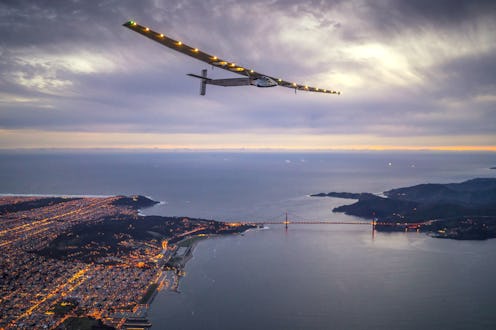News
Hawaii Doesn't Mind If Trump Supporters Boycott It

March 16 was scheduled to be the day President Donald Trump's revised travel ban went into effect. But on March 15, a federal judge in Hawaii blocked the executive order that would have suspended travel to the United States by citizens of six majority-Muslim countries and paused the nation's refugee program. And now supporters of the ban are using social media to encourage others to boycott Hawaii, using the hashtag #BoycottHawaii. They were soon met with Twitter users from the state serving them some truth: A lot of Hawaiians don't want those Trump supporters there anyway.
In his 43-page order, Judge Derrick Watson explains how his ruling is based on evidence that the order targets Muslims, a violation of the First Amendment. He even called out the government's false login with the ban, writing, "The notion that one can demonstrate animus toward any group of people only by targeting all of them at once is fundamentally flawed." It didn't take long for Trump to respond, telling attendees at a rally in Nashville, "This is, in the opinion of many, an unprecedented judicial overreach." Meanwhile, some folks displeased with the judge's ruling began taking to Twitter to share their plans to cancel scheduled trips to the Hawaiian islands and avoid vacationing there in the future.
What followed was a deluge of clapbacks from supporters of the block and Hawaiians themselves. Some expressed love for Hawaii or that Judge Watson's ruling just made it more appealing.
While many centered on Hawaii's history of colonization and longstanding ambivalence toward tourists.
What many people tweeting #BoycottHawaii seem to forget (or not have known) is that Hawaii isn't merely a vacation destination for folks from the continental United States. It existed before outsiders booked cruises there. Native Hawaiians lived on the islands for centuries before colonizers first arrived in 1778. And it was its own nation, a constitutional monarchy, before Americans on the island and the U.S. military invaded and overthrew the Hawaiian government. It was soon annexed as a republic and, in 1959, became the United States' 50th state. And throughout it all, native Hawaiians were brutalized, disempowered, marginalized, and persecuted for their cultures. How does one boycott a place that was invaded? Short answer: You don't.
As someone who isn't Hawaiian, I am far from the best person to speak on this subject. And I would encourage all those enjoying these #BoycottHawaii tweets without much context to look into long, rich history outside of what you may have learned in grade school.
But as someone who loves Twitter and any good joke made at settler colonialism's expense, I'm here for Hawaiians' #BoycottHawaii responses. If you don't see the irony of supporting banning immigrants and refugees from the United States by canceling your trip to Hawaii, go ahead and boycott the islands. As the #BoycottHawaii hashtag is illustrating, Hawaiians don't need you there any way.